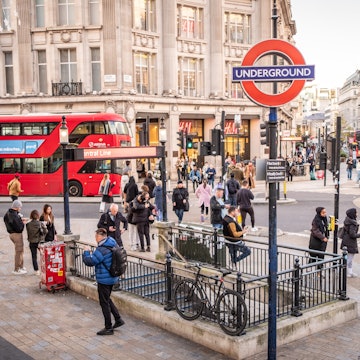
Main causeway completely empty.
Angkor, capital of the mighty Khmer empire and one of the largest metropolises in the medieval world, was first abandoned in the 15th century. Today, it lies abandoned once more, this time by tourists and travellers, as the Coronavirus first grounded the travel industry and has since brought the global economy to a shuddering halt.
Anyone who has visited Angkor Wat, the world’s largest religious building, or any of the competing ‘wonders of the world’ has daydreamed about the moment when the crowds finally melt away and you have a global icon to yourself. It should be magical, it is definitely memorable, yet there is a melancholy air to the emptiness, as it signals suffering in Siem Reap, gateway to the Temples of Angkor.

Crossing into the inner sanctum, the main causeway of the ‘temple that is a city’ is deserted and we feel the awe of Henri Mouhot and the early European explorers who ‘discovered’ Angkor. Standing in the same spot a few years earlier for the Spring Equinox when filming the BBC Civilisations series, the causeway was like a London tube station during rush hour. Now, nothing but nature’s soundtrack of resident bats, frogs and birds.
The intricate bas-reliefs wrap themselves around the base of Angkor Wat for more than 800m of spiritual and cultural enlightenment. Hindu epics are told, historic battles unfold and scenes of heaven and hell remind us that death stalks every epoch, including the god kings of Angkor.

We wind our way to the Bakan Sanctuary of Angkor Wat, the epic final level, where in normal times a snaking queue wraps its way around the lower courtyards. Today there is no queue, there are no people. Looking out over the mother of all temples, it is hard to believe that in a ‘normal’ day there would be almost 8000 visitors at this time of year. Now, just a handful of passes are being sold to foreign residents keen to practise social distancing against the world’s most incredible backdrop.

Other temples are equally empty, even eerie, including the enigmatic face temple of Bayon. The upper level of faces is closed for renovation, but the maze-like middle levels are a place to get lost amid precarious pillars, sacred statues and forgotten carvings.

Ta Prohm is uncannily like a film set, probably in part down to it use as a location for Lara Croft: Tomb Raider starring Angelina Jolie, but it would be equally at home in an Indiana Jones reboot. I worked as a location manager on Tomb Raider back in 2000, but it still wasn't possible to shutdown the temple and completely control the crowds. Today, you wouldn’t need to bother, as we had the towering trees to ourselves, save for the calls of parakeets and cries of cicadas.

The temples are inspiring without the crowds, but Siem Reap is depressing and in a crisis-induced coma, like much of the world right now. However, temple town lives and breathes tourism and does not have a diversified economy to wake itself up. 80% or more of the town depends on tourism dollars and right now they have dried up. Most of the hotels are shuttered, the majority of restaurants are closed, galleries lie dormant and Pub Street has turned off the lights. There is no official lockdown in Cambodia, but when the world stops, Siem Reap goes into suspended animation.

My first visit to Angkor was back in 1995. Siem Reap was an overgrown village, the Khmer Rouge were still fighting the government and there were landmines littering remote temples; yet there were more visitors than today. Unlike the many Shiva temples here, Angkor Wat is dedicated to Vishnu, he who preserves and protects and Cambodia and its people could very much benefit from his protection at this time.

Cambodia has been through more than its fair share of trauma, including an illegal bombing campaign, a brutal civil war, a tragic genocide and a long occupation. Cambodia is the comeback kid of Asia. If Cambodia can come back from where it has been and what is has seen, then there is hope for the world and its comeback after Coronavirus.
Author Note:
Cambodia does not currently have a lockdown in place, but many people in the towns and cities are practising their own form of social distancing, including an official ban on inter-provincial travel during Khmer New Year. Coronavirus came early to Cambodia with direct flights from Wuhan to Siem Reap and Sihanoukville and the first official case was diagnosed in a Chinese tourist on 27 January. To date, there have only been 122 official cases and no official deaths. The WHO has designated Cambodia as a country with only ‘sporadic’ cases of Covid-19.




















